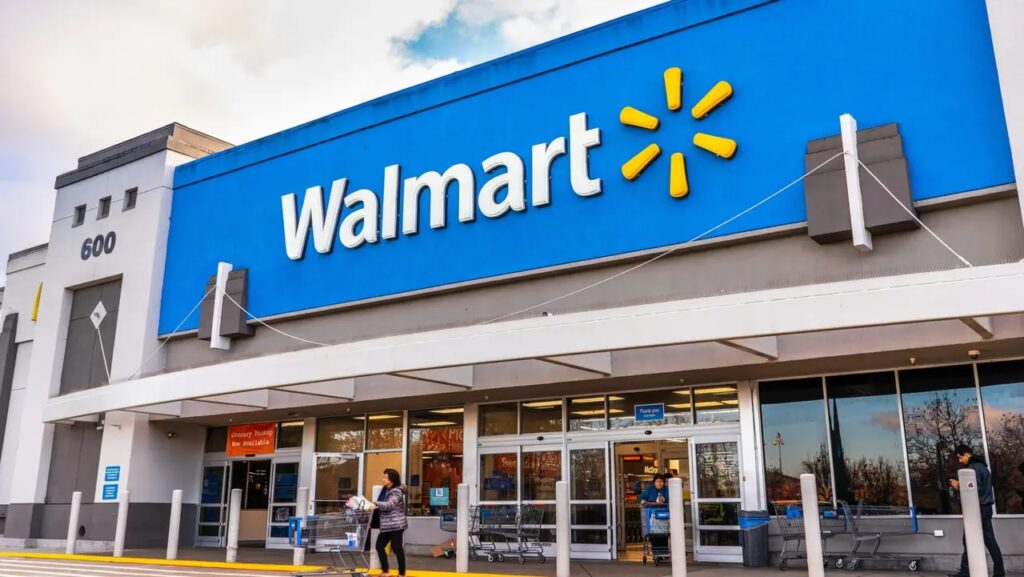Walmart is a well-known retail giant that offers a wide range of products and services. One of the services they offer is the ability to cash a cashier’s check.
A cashier’s check is a type of check that is guaranteed by the issuing bank. This means that the funds are guaranteed and cannot be canceled or returned. Because of this guarantee, many people prefer to use cashier’s checks for large transactions such as real estate purchases or car sales.
If you have a cashier’s check that you need to cash, Walmart is a convenient option. You can cash a cashier’s check at any Walmart store, regardless of the amount it’s drawn for. To cash a cashier’s check at Walmart, you will need to endorse the check and provide a valid government-issued ID such as a driver’s license or passport.
Depending on the amount of the check, there may be a fee to cash it at Walmart. Fees for cashing preprinted checks up to $1,000 are a maximum of $4, and fees for preprinted checks between $1,000 and $5,000 are a maximum of $8. These fees are subject to change, so it’s a good idea to check with Walmart before cashing your check.
In addition to cash, Walmart also offers the option to receive your payment on a Walmart MoneyCard. This is a prepaid debit card that can be used anywhre that accepts Mastercard. If you choose this option, there may be additional fees associated with the card, so it’s important to read the terms and conditions carefully.
Cashing a cashier’s check at Walmart is a quick and convenient option. Just be sure to bring a valid ID and be prepared to pay any applicable fees.
Can I Cash Out a Cashier’s Check Immediately?
When it comes to cashier’s checks, the availability of funds typically depends on the bank’s policies. Generally, cashier’s checks are considered to be more secure than personal checks because they are issued by a bank and are guaranteed to be paid out. As a result, banks will typically make the funds from a cashier’s check available to the recipient within one business day.
However, it’s important to note that just because the funds are available, it doesn’t necessarily mean that you can cash out the check immediately. Most banks have a hold period during which they verify the authenticity of the check and ensure that the funds are available. This can take several days, especially if the check is for a large amount.
If you need the funds from a cashier’s check immediately, you may be able to request a “hold waive” from your bank. This is essentially a request to have the hold period waived so that you can access the funds right away. However, not all banks offer this service and they may charge a fee for it.
While cashier’s checks are generally considered to be more secure than personal checks, there may still be a hold period before you can cash out the check. If you need the funds immediately, you may be able to request a hold waive from your bank, but this may not alays be an option.

Cashing a Cashier’s Check
Cashing a cashier’s check is a straightforward process, but it’s essential to know where and how to do it correctly. A cashier’s check is a secure payment method that can provide peace of mind when receiving large sums of money. Here are the best ways to cash a cashier’s check.
1. Go to the Issuing Bank: The most convenient and practical way to cash a cashier’s check is to go to the bank where it was issued. The issuing bank will always cash a cashier’s check, regardless of the amount, and you don’t need to have an account with them. You need to endorse the check by signing the back of it and present a valid form of identification, such as a driver’s license or passport.
2. Use Your Bank: If you have an account with a bank or credit union, you can deposit the cashier’s check into your account and withdraw the funds later. The bank may place a hold on the check for a few days to verify the funds’ availability. It’s important to check with your bank to see if they charge any fees for depositing a cashier’s check.
3. Check-Cashing Stores: If you don’t have a bank account or can’t go to the issuing bank, you can use a check-cashing store. However, check-cashing stores charge high fees, which can range from 1% to 12% or more of the check’s value. It’s essential to read the fine print and understand the fees beore cashing a cashier’s check at a check-cashing store.
The best way to cash a cashier’s check is to go to the issuing bank or use your bank if you have an account. Check-cashing stores are an option, but they charge high fees, so it’s important to understand the fees beforehand. Always endorse the check and have a valid form of identification when cashing a cashier’s check.
Where to Cash a Cashier’s Check
If you’re looking to cash a cashier’s check, there are a variety of options available to you, including many popular retail stores and check cashing locations.
One option is to visit a local Walmart store, as they offer check cashing services for a variety of different types of checks, including cashier’s checks. In addition to Walmart, other major retailers like Kmart and Kroger also offer check cashing services, though availability may vary by location.
Another option is to visit a bank or credit union where you have an account. Many banks will cash cashier’s checks for account holders, though they may charge a fee for the service. Additionally, some banks may require that the check be deposited into your account raher than providing cash.
If you don’t have a bank account or prefer not to use one, there are also many check cashing stores that will cash cashier’s checks for a fee. Popular options include Ace Cash Express, Check ‘n Go, Check Into Cash, Pay-O-Matic, PLS Check Cashing, Money Mart, and Moneytree.
When choosing a location to cash your cashier’s check, it’s important to consider factors like fees, convenience, and availability. Be sure to check with the specific location you plan to visit ahead of time to confirm their policies and any fees associated with the service.
Limits of Cashier’s Checks at Walmart
A cashier’s check is a type of payment instrument that is guaranteed by the issuing bank. It is considered a secure and reliable way to transfer funds between parties, especially for large transactions. Walmart offers this service to its customers, allowing them to purchase cashier’s checks for various purposes.
The limit for a cashier’s check at Walmart varies depending on the store location and the amount requested. Generally, Walmart stores can issue cashier’s checks up to $5,000. However, some stores may have lower limits, so it’s best to check with your local Walmart to confirm their policy.
It’s important to note that Walmart may charge a fee for issuing a cashier’s check, which can range from a few dollars to around $10, depending on the amount and the store location. Additionally, you may need to provide identification and other personal information to complete the transaction.
If you need to transfer more than $5,000, you may need to considr other payment options, such as wire transfers or electronic payments. These methods typically involve higher fees, but they offer greater convenience and faster processing times.
The limit for a cashier’s check at Walmart is typically up to $5,000, but it can vary depending on the store location. Customers should check with their local Walmart store for specific policies and fees related to cashier’s checks.

Conclusion
Walmart offers various financial services, including the ability to cash cashier’s checks. With multiple locations across the country, customers can conveniently access their funds in cash or on a Walmart MoneyCard. While there may be a fee associated with cashing the check at a check-cashing store, it can be a useful option for those without a bank account. Walmart’s financial services provide a convenient and accessible option for customers to manage their finances.
